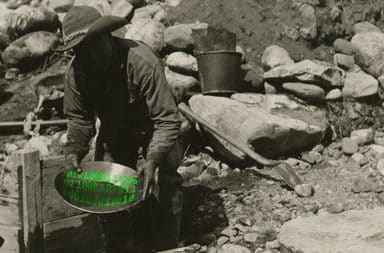Homer (ca 1200-800 BCE, Poet): Homer’s method for beating writer’s block was to be blind in a time where very few people could actually write, and to write with a very new language borrowed from the Phoenicians. Maybe he was magic too. That would make more sense.
Aristotle (384-322 BCE, Philosopher, Teacher, and Writer): Aristotle’s method for beating writer’s block was to sacrifice something to the Gods and probably partake in some Greco-Macedonian pederasty. Pederasty is the practice of taking a male youth as your lover. It’s seen as awful now, but every grown man had a pre-teen lover back then. So obviously that is a problematic and illegal way to cure your block. But sacrificing a goat, or a cow, or a child to Zeus, that always works, and there are no moral issues with it!
Matthew, Mark, Luke, and John (0, Cultists): Another great way to beat writer’s block is to do what these guys did: write a true story but change some stuff to make it more interesting. These four wrote some stories about their friend, a street hustler who got murdered for his crimes by the government, but they changed the story so he wasn’t a hustler, instead, he was magic. This is how a lot of fantasy novels are written today, and these guys were the first ones to do it.
Then no one wrote anything for 14 centuries.
Geoffrey Chaucer (ca 1340-1400 CE, Writer): Chaucer’s system for beating writer’s block was to be born right before the Black Plague ravaged his country, and then just live through it. To be completely honest, this is a bold move. The plague killed a lot of people. Worked for Chaucer, though.
William Shakespeare (1564-1616 CE, Playwright): A great way to beat writer’s block is to do what Shakespeare did: realize that writing beautiful things that everyone understands is overrated. Instead, write beautiful things full of made-up words and phrases to the point where even your basic plots are hard to follow. His plays are treated like gold, even though no one understands most of the shit he’s saying except for high school teachers who had to go to college for four years to learn how to pretend that they understand it.
Mary Shelley (1797-1851 CE, Writer): Violate a bunch of dead bodies. Write an autobiography. Change some names and locations for plausible deniability. That’s what Shelley did. And goddammit, it worked.
Edgar Allan Poe (1809-1849 CE, Poet): Poe’s method for beating writer’s block was just to be emo. We’re not talking listens-to-My-Chemical-Romance-and-has-a-safety-pin-nose-piercing emo. We’re talking bodies in the floor, talking ravens, and stories so dark and demented even Satan is like, “Whoa man take it easy, lighten up a bit” emo. Not for the faint of heart.
Lewis Carroll (1832-1898 CE, Writer): An early adopter of a classic writer’s block cure, Carroll’s method was simple: drugs. Step one was to do a bunch of drugs and write down all of the terrifying things that flooded into his brain. It was critical to really embrace the demons that plagued his mind and then put them down onto the page. The words he wrote would really give everyone an insight into what it is like to be truly insane. Step two was to call it a children’s book.
Sigmund Freud (1856-1939 CE, Philosopher, Writer, and Motherfucker): Kinks! This method requires true bravery, to unleash your kinks onto the general population through your words. This may be a last resort to beating writer’s block, as it creates some pretty messed up writing and theories. Honestly, using drugs is probably preferable.
George Orwell (1903-1950 CE, Writer): Orwell’s tactic to beating his writer’s block was to be able to see the future. Inspired by his visions, he wrote intense allegories that, if taken as lessons on how not to do things, could save the future of humanity. This writer's block cure did, unfortunately, come with the awful knowledge that his stories would be ultimately ignored. Even with his ability to see the future, Orwell would not be able to stop the world from turning into a massive trash fire.
Every Comedy Writer in the ‘70s (1970-1979 CE, Writers): Cocaine!


